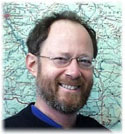 Bruce Campbell teaches in German Studies (in the Department of Modern Languages and Literatures), and is the Program Director of European Studies. He has also taught in History and Literary and Cultural Studies at the College of William and Mary.
Bruce Campbell teaches in German Studies (in the Department of Modern Languages and Literatures), and is the Program Director of European Studies. He has also taught in History and Literary and Cultural Studies at the College of William and Mary.
He received his M.A. and Ph.D. in European History from the University of Wisconsin-Madison. His research interests include State Violence, Paramilitary Organizations, (particularly the Nazi Brownshirts); National Socialist Perpetrator Biography and the Holocaust; the German Youth Movement, German Culture and National Identity, Nationalist and War Literature; Radio; and German-Language Detective Fiction.
His most recent book publication is Detectives, Dystopias, and Poplit: Studies in Modern German Genre Fiction (co-edited with Alison Guenther-Pal and Vibeke Petersen.) (Elizabethtown, NY: Camden House, 2014). and his most recent articles are:
“The Detective Was the Killer: the Memory of the Nazi Past in Modern German Detective Fiction” (In: Detectives, Dystopias, and Poplit: Studies in Modern German Genre Fiction (Elizabethtown, NY: Camden House, 2014), edited by Bruce Campbell, Alison Guenther-Pal and Vibeke Petersen).
“Autobiographies of Violence: The SA in its own Words” in: Central European History, special issue on the SA, Vol. 46, Nr. 2 (June 2013), pp. 217-237.
“Gewalt bis in die obersten Ränge. Die Höheren SA-Führer der SA-Gruppe Berlin-Bandenburg” in: Stefan Hördler (ed.) Der SA-Terror als Herrschaftssicherung. “Köpinecker Blutwoche” und Öffentliche Gewalt im frühen Nationalsozialismus (Berlin: Metropol Verlag, 2013).
He is currently working on a study of technological modernity and radio in Germany, and on the political biography of the Free Corps leader Gerhard Roßbach.
Publications
-
Detectives, Dystopias, and Poplit: Studies in Modern German Genre Fiction (Elizabethtown, NY: Camden House, 2014). Bruce Campbell, Alison Guenther-Pal and Vibecke Petersen, editors. Some of the most exciting research and teaching in the field of German Studies is being done on “genre fiction,” including detective fiction, science fiction, and what is often called “poplit,” to name but a few. Such non-canonical literature has long been marginalized by the German tradition of Bildung and the disciplinary practice of German literary studies (Germanistik), but has received growing interest today. This first broad treatment of German genre fiction brings together innovative new scholarship, foregrounding themes of gender, environmentalism, and memory. It is an ideal companion to research and teaching. Written in accessible English, it speaks to a wide variety of disciplines beyond German Studies.
Contributors: Bruce B. Campbell, Ray Canoy, Kerry Dunne, Sonja Fritzsche, Maureen O. Gallagher, Adam R. King, Molly Knight, Vibeke Rützou Petersen, Evan Torner, and Ailsa Wallace.Death Squads in Global Perspective: Murder with Deniability (New York: St. Martin’s, 2000). Bruce Campbell, editor Death Squads are killing people today. They may be found around the world, and in many different types of states. Campbell and Brenner have gathered scholars from several countries and disciplines to produce the first global comparison of death squads, and the first to put them in historical perspective. Available in hardcover and paperback. 
-
The SA Generals and the Rise of Nazism (1998). Bruce Campbell, authorNo part of the Nazi movement contributed more to Hitler’s success than the Sturmabteilung (SA) — the notorious Brown Shirts. Bruce Campbell offers the first in-depth study in English of the men who held the three highest ranks in the SA. Organized on military lines and fired by radical nationalism, the Brown Shirts saw themselves as Germany’s paramilitary saviors. 